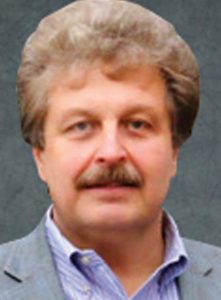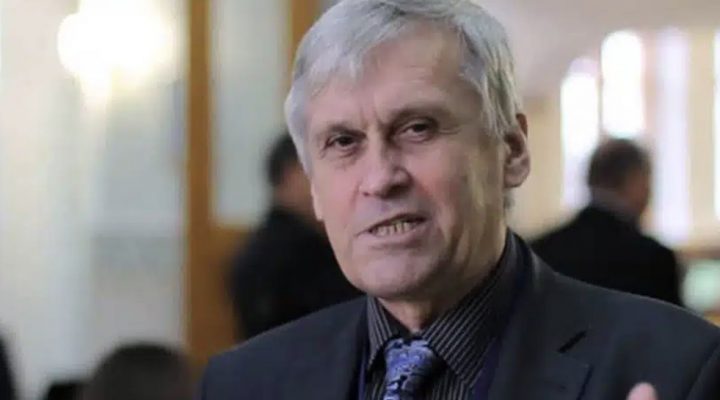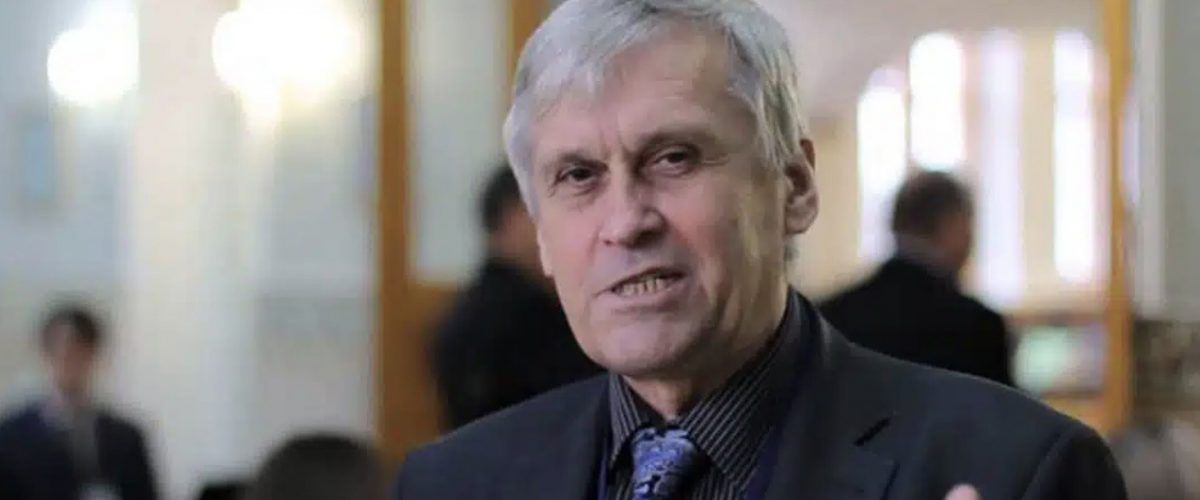Yuri Sipko, a former president of the Union of Evangelical Christians-Baptists in Russia, fled his homeland in August when authorities attempted to arrest him for publicly praying for peace in Ukraine.
The retired pastor and former vice president of the Baptist World Alliance said he anticipated the government’s action for being an outspoken critic of the war online and after his participation in an virtual prayer vigil for Ukraine in February. The event was hosted by Mission Eurasia on the one-year anniversary of the invasion.
“The law makes it a crime to call the war a ‘war’ and does not allow anyone to call for peace in Ukraine. But I prayed for peace and said it is a crime to drop rockets and bombs on the Ukrainian people,” Sipko, 71, said through an interpreter during a Zoom interview from an undisclosed location in Europe.
He evaded capture at his Moscow home on Aug. 8 and has since been placed on a most-wanted list for disseminating “false information” about the invasion. “It is a terrible thing when the word ‘peace’ is outlawed. Everything is upside down in Russia,” he said.
“Until I am gagged, I will continue to speak out.”
Sipko, who served as leader of the Russian Baptist union from 2002 to 2010 and as a Baptist World Alliance vice president from 2005 to 2010, said his faith requires him to continue protesting the war and praying for Ukraine: “The gospel and Christianity compel us not to remain silent. Jesus Christ was not silent, and the apostles were not silent. Paul was not silent even when he was in prison. I am merely following the example of the gospel and such great Christian witnesses. Until I am gagged, I will continue to speak out.”

Sergey Rakhuba
Such faith and courage commands not only respect but support, said Mission Eurasia President Sergey Rakhuba. The Nashville-based global ministry is helping the minister with rent and living expenses while he lives outside Russia.
“He is in tremendous financial need. He left his house in a T-shirt and blue jeans and barely managed to escape,” said Rakhuba, a Baptist who came to the U.S. as a Ukrainian refugee during the Reagan administration. “They came after him with special police, like SWAT teams. They wanted to arrest a pastor for saying, ‘Stop killing people’ and ‘Stop bombing people.’ This is what the Putin administration brings.”
“The state threatens evangelicals and there is no religious freedom under Putin.”
Rakhuba said he hopes Americans — and especially his fellow Republicans — will see through the Russian government’s claims to support religious freedom. “Only the (Russian) Orthodox Church has freedom. The state threatens evangelicals and there is no religious freedom under Putin. He puts in prison ministers who care for their churches. There is no room for a regime like Russia in the world today.”
He added a plea for U.S. churches to continue praying for Ukraine and contributing to its material needs: “Ukraine is a very resilient nation, but Ukraine needs help defending their country, feeding their people and protecting their right to freely worship God.”
Sipko agreed religious liberty is diminishing for Protestant groups at an alarming rate.
“No doubt about it,” he said. “The political monopoly of the Orthodox Church is being strictly enforced. It is as though a cruel trick has been played on us because we began losing our religious freedoms gradually and didn’t see it. It started with the Jehovah’s Witnesses, and now it is blindsiding us.”
According to the U.S. Commission on International Religious Freedom, Russia banned Jehovah’s Witnesses in 2017 as a “extremist” group. Hundreds of members have been arrested and jailed on charges “related to their peaceful religious activities.”
USCIRF has since confirmed deteriorating conditions for religious freedom in Russia: “The government targets ‘nontraditional’ religious minorities with fines, detentions and criminal charges under the pretext of combating extremism. Russian legislation criminalizes ‘extremism’ without adequately defining the term, enabling the state to prosecute a vast range of nonviolent religious activity.”
Ironically, many Christians in Russia settle for the situation because they believe the government’s assertions that conditions are even worse in the West.
“There is a false sense of confidence that the government is on their side because the political elite have convinced religious leaders and churchgoers that the West is in decay, that the Western church is in decay from homosexuality and women teaching in churches,” a USCIRF report explains.
But as difficult as his situation is, Sipko said he is able to take it in stride partly because he grew up with oppression in the Soviet Union. In those years, his father, a Baptist minister, was imprisoned and religious discrimination was typical for the entire family.
“I was born when Stalin was still alive. We were persecuted and we watched our grandparents harassed for their faith. And we were persecuted as children for having Christian parents.”


